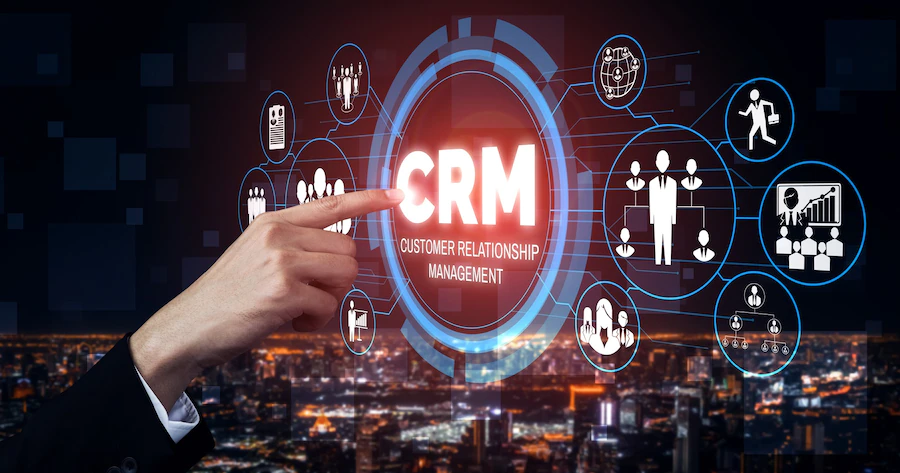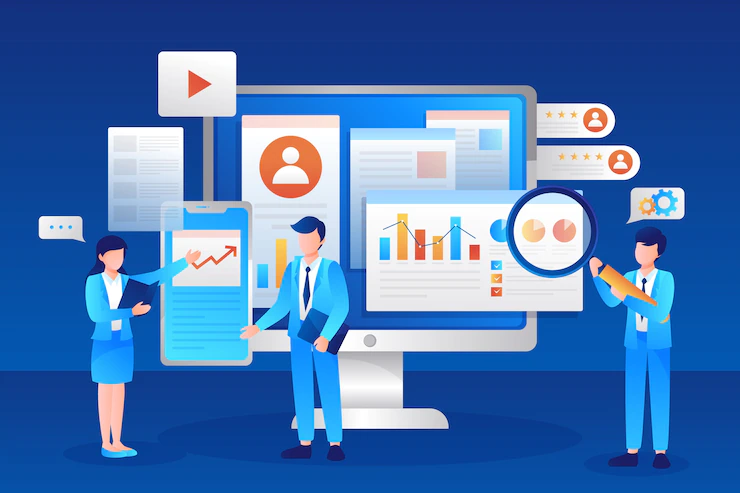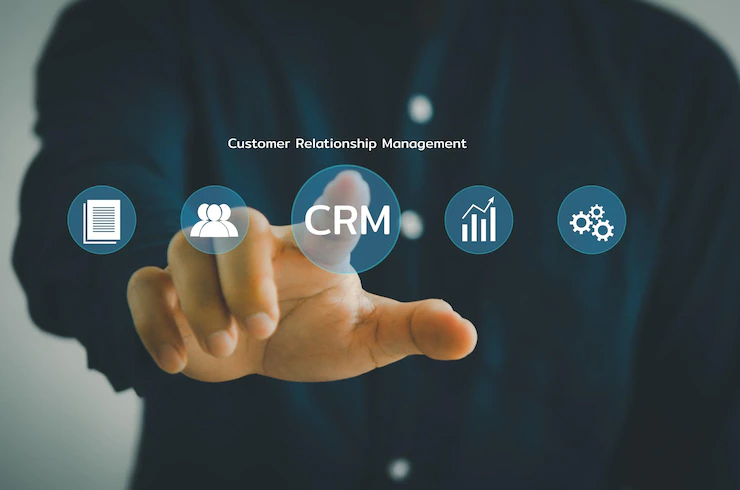CRM & ERP Solutions
CRM & ERP Solutions are both business applications that store and analyze data on a relational database. In a nutshell, CRM is a piece of software that handles the entire interaction that customers have with the company.

CRM & ERP Solutions: Streamlining Business Efficiency and Customer Relationships
In the dynamic landscape of modern business, effective management of customer relationships and internal operations is paramount to success. This article delves into the world of Customer Relationship Management (CRM) and Enterprise Resource Planning (ERP) solutions, exploring their significance, functionalities, and the transformative impact they bring to organizations.
1. Introduction: The Crucial Role of CRM & ERP Solutions
In a fast-paced business landscape where customer expectations are ever-evolving and operational complexities abound, CRM and ERP solutions have emerged as indispensable tools for achieving operational efficiency, fostering customer loyalty, and driving growth.
2. Understanding CRM: Building Stronger Customer Connections
Managing Customer Data
CRM solutions centralize customer data, offering a comprehensive view of interactions, purchase history, and preferences. This enables businesses to tailor their offerings and communication for enhanced customer satisfaction.
Enhancing Customer Interactions
CRM platforms facilitate personalized and timely interactions through automation, ensuring that customers receive the right information and assistance at every touchpoint.
Improving Sales and Marketing Efforts
By analyzing customer data, CRM systems empower sales and marketing teams to identify trends, target high-potential leads, and design effective campaigns.
3. Unveiling ERP: Orchestrating Seamless Operations
Integration of Business Processes
ERP solutions integrate various business functions, such as finance, inventory, procurement, and human resources, into a unified system, eliminating data silos and streamlining workflows.
Resource Allocation and Planning
ERP systems provide insights into resource availability and demand, optimizing inventory management, production scheduling, and resource allocation.
Supply Chain Management
Efficient supply chain management within ERP frameworks ensures timely procurement, production, and delivery of goods, minimizing bottlenecks and delays.
Financial and Accounting Control
ERP software offers robust financial management capabilities, including budgeting, invoicing, and reporting, providing real-time visibility into the organization’s financial health.
4. Synergy between CRM and ERP: A Holistic Approach
Integrating solutions bridges the gap between front-end customer interactions and back-end operations, enabling a seamless flow of information and enhancing overall business performance.
5. Tailoring Solutions to Specific Industries
Manufacturing and Production
ERP systems optimize production processes, manage inventory, and facilitate quality control, ensuring efficient manufacturing operations.
Retail and E-commerce
CRM solutions aid in understanding customer preferences, while ERP systems handle inventory, order processing, and logistics, contributing to a smooth retail experience.
Healthcare and Pharmaceuticals
Both solutions play a crucial role in patient management, from personalized care plans and appointment scheduling to inventory management of medical supplies.
Service and Hospitality
CRM systems help in guest relationship management, while ERPs streamline reservations, inventory, and workforce management in the service industry.
6. Navigating Implementation Challenges
Data Migration and Integration
Migrating existing data and integrating new systems can be complex, requiring careful planning and expertise.
Change Management
Adopting necessitates a cultural shift within the organization, emphasizing the value of data-driven decision-making and process optimization.
Customization and Scalability
Balancing customization with scalability ensures that the implemented solutions meet current needs while accommodating future growth.
7. The Future of CRM & ERP: Innovation and Adaptation
The continuous evolution of technology promises innovations such as AI-driven insights, predictive analytics, and IoT integration, shaping the future of CRM and ERP solutions.
8. Benefits of Investing in CRM & ERP Solutions
Implementing CRM and ERP solutions yields benefits such as improved efficiency, enhanced customer experiences, informed decision-making, and streamlined operations.
9. Selecting the Right Solution for Your Business
Needs Assessment
Identify specific pain points and objectives to determine whether a CRM, ERP, or integrated solution is the right fit.
Vendor Evaluation
Thoroughly assess vendors’ offerings, expertise, and customer support to select a solution provider that aligns with your business goals.
User Training and Support
Proper training and ongoing support are essential to ensure that your teams can effectively leverage the capabilities of the chosen solution.
10. Case Studies: Real-World Impact of CRM & ERP Solutions
Explore success stories across industries where CRM and ERP implementations have led to enhanced efficiency, cost savings, and improved customer relationships.



